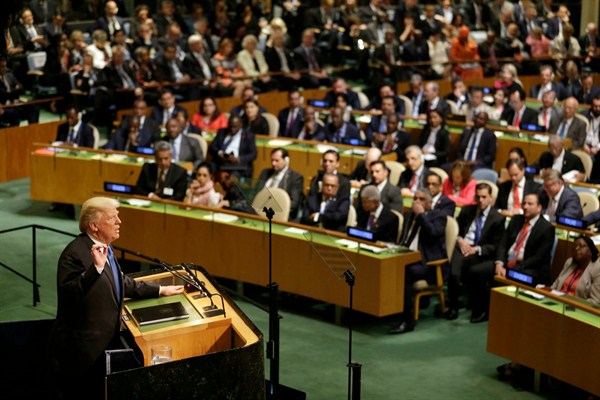One of the major concerns among critics of U.S. President Donald Trump’s “America First” foreign policy has always been that, in addition to potentially destabilizing the global order, it might end up being a shortcut to an “America alone” world. Trump’s decision last week not to recertify the Iran nuclear deal represented a step in that direction.
To reach his decision, Trump disregarded the International Atomic Energy Agency’s repeated declarations that Iran is in compliance with the terms of the agreement. He also ignored the entreaties of France, the U.K. and Germany, America’s allies who are also signatories to the deal.
Trump stopped short of torpedoing the accord. Instead he left the decision of whether to reimpose nuclear sanctions on Iran—a move that would violate its terms—to Congress, which is unlikely to act precipitously. Still, European Union foreign policy chief Federica Mogherini has warned that the Europeans will not abandon the deal, which they helped painstakingly negotiate, even if the U.S. does.

